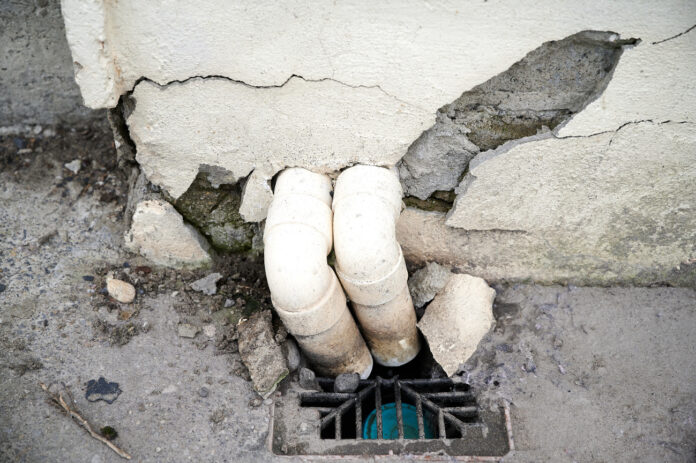EXPERT engineer, Simon Beale, has warned of aspects of the forthcoming defective blocks grant scheme which could penalise homeowners who have struggled to maintain their properties.
Mr Beale is a chartered engineer who has tested more than 250 pyrite-affected homes to-date, and has been working with Clare County Council to make the case for access for Clare to the grant scheme. At a major conference last week, hosted by the Technological University of the Shannon (TUS), he outlined his concerns about some of the terms of the revised grant scheme.
“The new requirement for a building condition report will prove difficult,” he said. “In some cases, homeowners have tried to hide the damage. This is almost a penalty for those who have tried to maintain and upgrade their homes.
Another problematic aspect of the new scheme, which is due to come before Cabinet next Tuesday (June 14), is that of partial repairs to properties with defective concrete blocks. “Demolition, to me, is the only option for pyrite,” he said.
“That’s the removal of all of the defective concrete blocks, down to the foundation. Often the simplest way to do that is by demolition. My office won’t sign off on remediation that doesn’t remove all of the defective blocks. We’ll see what indemnity the Department [of Housing, Local Government and Heritage] will provide going forward.”
Mr Beale’s concerns are shared by members of the Clare Pyrite Action Group (CPAG) who have backed calls for pre-legislative scrutiny of the legislation that will underpin the revised grant scheme for homeowners with defective blocks. No decision has yet been announced by the DHLGH on the issue of pre-legislative scrutiny, which could see consultation with experts and affected homeowners. The process could also delay the finalising of the new scheme, which the government hopes to do before the summer recess.
Mr Beale also told the conference of the similarities between the damage caused by pyrite in Clare with that in Mayo, which is one of only two counties who have access to a government grant. “Having tested in both counties, the physical and geological evidence is similar,” he said. “The question then arises, is why both counties are not on the Defective Blocks Grant Scheme.”
Meanwhile, officials of Council have provided an update this week on their efforts to secure access for Clare to the scheme. The briefing process was agreed at the May meeting of the authority, on foot of a motion from Councillor Ian Lynch.
The update provided on June 7, and seen by The Champion, confirmed that a detailed response has now been sent to the Department of Housing, Local Government and Heritage (DHLGH) in respect of queries it raised in December. That reply followed up, in detail, on a “holding response” made before Christmas. According to Director of Services for Housing, Anne Haugh, the Council “has, as requested, secured evidence which proves beyond doubt that manifest damage to the homes in Clare is as a result of excessive amounts of reactive pyrite in the blockwork”.
The update from the Council estimated the number of pyrite-affected properties at between 620 and 678. It also gave a rationale for those figures. Eleven of the properties are described by the local authority as “stand-alone buildings,” while the remainder are homes. Research presented last week by the CPAG puts the total estimate at 1,025 properties.
The update concludes that “the Council is satisfied that the presence of defective concrete blocks in Clare has been proven beyond reasonable doubt and is therefore seeking inclusion of County Clare in the revised redress scheme with immediate effect”.

